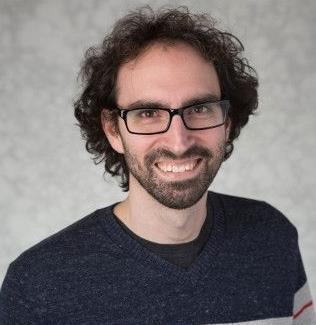Event Comprehension and Memory in Healthy Aging and Early Alzheimer’s Disease
People tend to perceive goal-directed human activity as structured by events and subevents. This perception is, in part, guided by a process of event segmentation whereby experience is parsed into discrete, hierarchically organized, units. How events are segmented is related to how they are understood and remembered. Older adults tend to have worse memory for events than younger adults, and evidence suggests this may be related to reduced event segmentation ability. In this talk, I will discuss some of our behavioral, structural imaging, and fMRI research on age-differences in event segmentation and memory, as well as research using individuals with Alzheimer’s Disease and traumatic brain injury.
Dr. Christopher Kurby, Grand Valley State University, investigates how people understand the events described in the stories they read, the daily activities they engage in, and the movies they watch. The activities we perceive in everyday life are continuous, yet we typically remember them as composed of separate events. For example, a trip to the zoo breaks down into entering the park, visiting the animals, and exiting. Making a sandwich breaks down into collecting the ingredients, and assembling them. In order to comprehend events effectively, we must be able to break down activity into these part-subpart structures.



